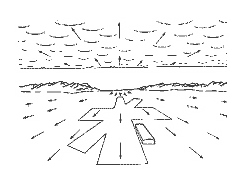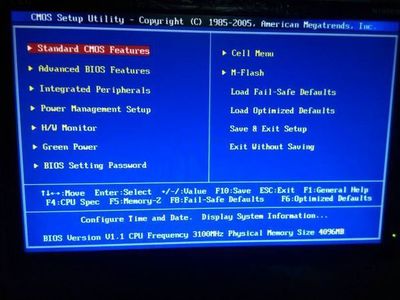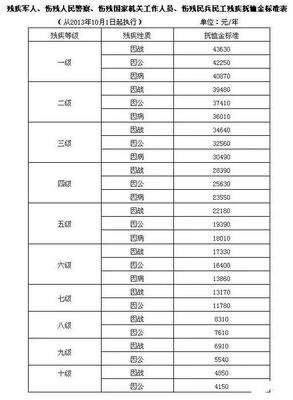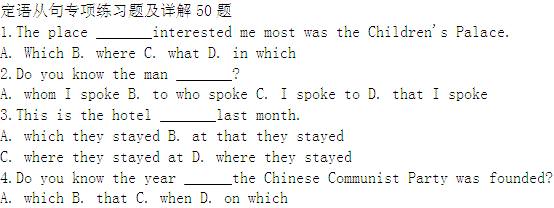一、概述
引用或转述别人说的话时有两种方法:直接引述别人的原话,这叫做直接引语(directspeech)。用自己的话转述别人的话,叫间接引语(indirectspeech)。一般地讲,直接引语前后要加引号,间接引语不用引号,而用宾语从句来表达。
Mr. Black said, “I'mbusy.”布菜克先生说:“我很忙”。(直接引语)
Mr. Black said that he wasbusy.布菜克先生说他很忙。(宾语从句是间接引语)
从上例看来,直接引语改为间接引语时,除将直接引语改为宾语从句之外,还须对直接引语中的人称和时态进行相应的变化,如上例直接引语中的I改成了he,am则改成了was。现将由直接引语改为间接引语时应注意的问题,分述如下:
二、直接引语是陈述句时
直接引语如果是陈述句,变为间接引语时,用连词that引导(that在口语中常省去),that从句之前用say、tell等动词,从句中的人称、时态、指示代词、时间状语、地点状语等要作相应的变化。
1、人称的变化
直接引语改为间接引语人称要相应的变化,把直接引语中的第一人称(如:I,me,my,mine,we,us,our,ours)变为与主句的主语相一致的人称。把直接引语中的第二人称(you,your,yours)变为和主句的间接宾语(即听话人,如无听话人,可根据上下文的体会人为确定一个人称)相一致的人称。直接引语中的第三人称(he,him,his,she,her,hers,it,its,they,their,theirs,them)变为间接引语时,人称不变。
He said , “I like itvery much.” 他说:“我非常喜欢它”。
→He said that heliked it very much.他说他非常喜欢它。(I改为he, it不变)
He said, “You toldme thisstory.”他说:“你给我讲过这个故事。”
→He said that I hadtold him thatstory.他说我给他讲过那个故事。(You改为I, me改为him, told改为hadtold)
He said to me, “She’s left herbook in yourroom”.他对我说:“她把书放在你的房间里去了。”
He told me that she had left herbook in my room.他对我说她把书放在我的房间里去了。(She’s→she had,her不变,your→my)
2、时态的变化
(1)主句的谓语动词是一般过去时
直接引语
间接引语
一般现在时
一般过去时
现在进行时
过去进行时
现在完成时
过去完成时
一般过去时
过去完成时
过去完成时
过去完成时(不变)
一般将来时
过去将来时
一般将来进行时
过去将来进行时
一般将来完成时
过去将来完成时
如主句的谓语动词是一般过去时,直接引语变间接引语时,从句的谓语动词在时态方面要作相应的变化。直接引语改为间接引语时,动词时态相应变化表:
He said, “I usually watch TV onSunday.”他说:“我常在星期天看电视”。
→He said that he usually watched TV onSunday.他说他常在星期天看电视。
He said, “I'm using theknife.”他说:“我正在用小刀。”
→He said that he was using theknife.他说他正在用小刀。
She said, “I have not heard from him sinceMay.”她说:“自从五月份来我就没有收到他的来信。”
→She said that she had not heard from him sinceMay. 她说自从五月份以来她就没收到他的来信。
He said,“I came to helpyou.”他说:“我来帮助你。”
→He said that he had come to helpme.他说他来帮助我。
He said, “I had finished my homework beforesupper.”他说:“晚饭前我己做完了作业。”
→He said that he had finished his homeworkbefore supper.他说晚饭前他己做完了作业。
Zhou Lan said, “I'll do it afterclass.”周兰说:“下课后我就去做。”
→Zhou Lan said that she would do it afterclass.周兰说下课后她就去做。
He said,“I shall be doing my homeworkthen.”他说:“那时我将正在做作业。”
→He said that he should be doing his homeworkthen.他说那时他将正在做作业。
He said, “We shall have finished the work bythat time.”他说:“我们将在那时以前完成工作。”
→He said that they should have finished the workby that time.他说他们将在那时以前完成工作。
注意:直接引语如果是客观真理、名人名言、与一个具体的过去时间连用说明客观事实时,变为间接引语时,时态不变。
The teacher said, “The earth isround. ”老师说:“地球是圆的。”
→The teacher said that the earth isround.老师说地球是圆的。
He said, “I was born in Shangdong in1965.”他说: “我1965年生于山东。”
→He said that he was born inShangdong in 1965. 他说他1965年生于山东。
He said, “Columbus discoveredAmerica in 1492.”他说:“哥伦布在1492年发现了美洲。”
→He said Columbus discoveredAmerica in 1492.他说哥伦布在1492年发现了美洲。
(2)主句的谓语动词是现在时或将来时
如果主句的谓语动词是现在时或将来时,直接引语变为间接引语时,时态一律不变
He says, “I finished thework.”他说:“我做完工作了。”
He says that he finished the work.他说他做完工作了。
He will say, “I have watered theflowers.”他会说:“我己经浇花了。”
He will say he has watered the flowers.他会说他己经浇花了。
3、指示代词、时间状语和地点状语的相应变化
见下表:
直接引语
间接引语
指示代词
this/these
that/those
时间状语
now
then
today
that day
tonight
that night
this week (month…)
that week (month…)
yesterday
the day before
last week (month…)
the week (month…)before
two weeks (month)ago
two weeks (months)before
tomorrow
the next day
next week (month…)
the next week (month…)
地点状语
here
there
动词
come
go
bring
take
He said, “I met Mr. Smith thismorning.”他说“我今天早晨见到史密斯了。”
He said that he had met Mr. Smith that morning.他说他那天早晨见到史密斯了。
He said, “We went to the cinemayesterday.” 他说:“我们昨天去电影院了。”
→He said they had gone to the cinema theday before. 他说前一天他们去电影院了。
Lily said, “I will come back nextmonth.” 莉莉说:“我下个月回来。”
→Lily said that she would go back the nextmonth. 莉莉说她下一个月就回去。
He said, “It is nine o'clocknow.”他说:“现在九点了。”
→He said that it was nine o'clockthen.他说那时九点了。
He said, “I haven't seen hertoday.”他说:“今天我没见到她。”
→He said that he hadn't seen her that day.他说那天他没有见到她。
She said, “I went thereyesterday.”她说:“昨天我去了那儿。”
→She said that she had gone there the daybefore.她说前一天她去了那儿。
She said, “I'll go theretomorrow.”她说:“明天我将去那儿。”
→She said that she would go there the nextday.她说第二天她将去那儿。

He said, “My sister was here three daysago.”他说:“三天前我妹妹在这儿。”
→He said that his sister had been there threedays before.他说三天前他妹妹在那儿。(here→there;ago→before)
She said, “I will come herethis evening.”她说:“今晚我将来这儿。”
→She said that she would go therethatevening.她说那晚她将去那儿。(come→go;here→there;this→that)
以上这些变化,要根据说话的具体时间和具体地点的情况而定,不可机械照搬。如果就在当地转述,here就不必改为there,come也不必改为go,如果就在当天转述,yesterday或tomorrow等时间状语也不必改变。直接引语中的一般过去时如与一个具体的过去时间状语连用,间接引语的一般过去时时态不变。
Father said,“I am free thisafternoon ”父亲说:“我今天下午有空。”
→Father said that he was free thisafternoon. 父亲说他今天下午有空。
He said, “I am going theretomorrow.”他说“我明天去那里。”
He said that he was going there tomorrow.他说他明天去那里。
巧记:去掉引号加that,人称变化要灵活,时态向后退一步,状语变化按规定。
三、直接引语是疑问句时
直接引语如为疑问句,改为间接引语时,须将疑问句的语序改为陈述句的语序。其人称、时态等相应的变化同上。
巧记:if(或whether)替引号,陈述语序要记牢。时态、人称和状语要变化,千万别把它忘掉。
1、直接引语是一般问句
变为间接引语时,须用连接词whether或if将其引出,使其成为间接引语的宾语从句。如果主句中的谓语动词为said,则将其改为asked。如果谓语动词后没有间接宾语,可以加上一个间接宾语me,him, her, them, us等。
She said, “Is yourfather anengineer?”她说:“你父亲是工程师吗?”
→She asked mewhether my father was anengineer.她问我说我父亲是否是工程师。
The teacher said to Li Ming, “Haveyou finished yourhomework?”老师对李明说:“你做完作业了吗?”
→The teacher asked Li Mingwhether he had finishedhis homework.老师问李明是否已做完作业了。
2、直接引语是特殊问句
如果直接引语为特殊疑问句, 改为间接引语时,仍用特殊疑问句中的疑问词what, where, when,who, howmany作为连接词将其引出,构成间接引语中的宾语从句,但须将疑问式的动词改为陈述式。如果主句中的谓语动词为said,则将其改为asked。
巧记:直接去引号,陈述语序莫忘掉。助动do(does)、did,要去掉。
“What do you do every Sunday morning?”myfriend said tome.我的朋友问我说,每星期天上午你做什么?
→My friend asked me what Idid every Sunday morning. 我的朋友问我每星期天上午我做什么。
“Where have you been, Li Ming?”theteacher asked.老师问道:“你上哪里去了,李明?”
→The teacher asked Li Mingwhere he had been. 老师问李明曾去过哪儿。
I asked her, “How many English books will youread next term?” 我问她说:“下学期你将读多少本英语书? ”
→I asked her how many English books shewould read the next term.我问她下学期将读多少本英文书。
“When did you get up this morning?”askedmy father.我父亲问道:“今天早晨你什么时候起床的?”
→My father asked me when I had gotup that morning. 我父亲问我那天早晨我是什么时候起床的。
注意: 直接引语里是:What's wrong with……?/What's the matter?/What's the trouble?/What hashappened?/等特殊疑问句时,间接引语的语序不变。
He said to her“What’sthe matter with you?”他问她“你怎么了?”
He asked her what was the matter with her.他问她怎么了。
四、直接引语是祈使句
巧记:去掉引号要加to;ask,order须记住,直引若是否定式,not加在to前部。
转述祈使句时,要使祈使句的动词原形变为带to的不定式,并在不定式的前面根据句子的意思加上tell、ask、order等动词,如果祈使句为否定式,在不定式的前面加not。如果祈使句中有please一词,改为间接引语时,就将please去掉。成为:told(asked, ordered, warned)someone (not)to do something结构。
He said,“Sit down,please.” 他说:“请坐。”
→He asked me to sit down.他让我坐下。
The teacher said,“Don’t talkin class! ” 老师说:“上课不要讲话! ”
→The teacher told us not to talk inclass!老师要我们上课不要讲话。
The captain said to hismen,“Fire! ”上尉对他的士兵们说“开火!”
→The captain ordered his men tofire. 上尉命令他的士兵们开火!
The policeman said to the children,“Don't playfootball in the middle of the street.”警察对孩子们说:“别在马路中间踢足球。”
→The policeman warned the children not toplay football in the middle of thestreet.警察警告孩子们不要在马路中间踢足球。
五、点击考点
I.改错:
1.He said that he is going to London.
2.Tom said they had finished the job yesterday.
3.She asked me don’t smoke in the room.
4.They asked that he was there.
5.I asked you where was he going.
6.The teacher told us not talk any more.
7.The doctor said to his wife,Not wait forme.
8.He asked me who I am.
9.Mary said that she would see you tomorrow.
10.Mother asked what the matter was.
II.将下列句子改为间接引语
1. “Where will you go tomorrow?”, Mother asked me.
2.The old woman said to me, “Please lock the door forme.”
3.The boy told his teacher, “We went to an exhibitionyesterday.”
4.He said, “I'll go to the station to see off a friend of minethis afternoon.”
5. “Hello,how are you?”, he said to me.
6.Tom said to me angrily, “Why don’t you tell me you have beenhere for two weeks?”
7.John said to Mary,“Do you remember I borrowed a diamondnecklace from you?”
8.The teacher said to Li Ming,“Don’t make the same mistakeagain.”
9. “Are you leaving today or tomorrow?”, I asked her.
10.The nurse said to the children, “The sun rises in theeast.”
参考答案:
I. 1.is→was 2.yesterday→the daybefore3.don’t→notto4.that→if
5.washe→he was6.not 后面加to 7.Not→Don't8.am→was
9.tomorrow→the next day10.was thematter
II. 1.Mother asked me where I would go the next day.
2.The old woman asked me to lock the door for her.
3.The boy told his teacher that they had gone to an exhibitionthe day before.
4.He said that he would go to the station to see off a friendof his that afternoon.
5.He asked me how I was.
6.Tom asked me angrily why I didn't tell him I had been therefor two weeks.
7.John asked Mary if she remembered he had borrowed a diamondnecklace from her.
8.The teacher told Li Ming not to make the same mistakeagain.
9.I asked her whether she was leaving that day or the nextday.
10.The nurse told the children that the sun rises in theeast.
 爱华网
爱华网



